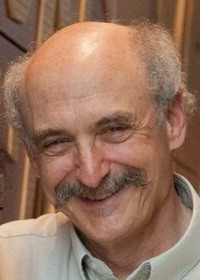
Research that makes people laugh and then think
 David Rosenbaum |
The press about science and not only  Holding Doors for OthersDo you hold doors for others? Psychological Science May, 2011 Joseph P. Santamaria, David Rosenbaum, University of Pennsylvania, USA, published the article "Etiquette and Effort: Holding Doors for Others" in the journal "Psychological Science", 2011, May 22 (5): 584-8. The authors studied the behavior of people passing through the doors to the courtyard of the building at the University of Pennsylvania, to the university park. Using a digital video camera, we managed to record the behavior of 148 people approaching the door and passing through the door. The records show whether the person delayed the door for the people following him, how far from the door the person following him (or those who followed) was, how long it took him or them to reach the doorway, and how many people followed the first person through the door. Experts did not study cases in which there were more than two who followed, and also did not study the behavior of people holding the door, if there were more than one. They analyzed only those cases where the first person who reached the door saw people following him. Personal characteristics, abilities or achievements of the observed people were not taken into account in any way. In order to determine the distance between people passing through the door, a still image was removed from the video stream at the moment when it was decided that the first person had touched the door. The distance was defined as the distance between the center of the head of the first person and the center of the head of the one who followed him (the second person). To determine the time, they calculated the difference between the moment when the person who opened the door touched it and the moment when the head of the first person following him reached the doorway. The time resolution achievable by this method was limited by the video frame rate (about one frame every 67 ms). It turned out the following. Firstly, the probability of the door being held by the first person decreased with the distance from the door to those who followed him. Second, the more often the door was opened for the followers when they were approaching the door (that is, the distance from the door to the followers was shorter), the more often they would move from the usual step to the faster step. Thus, the closer other people are to the door, the more likely it is that the first person at the door will hold the door open for them. Accordingly, seeing his efforts, those following him will hurry. The decision whether to hold the door open depends on the calculation of the likelihood that the person holding the door will take less effort than the next person would need to open the door again. To leave the door open for the next person or not, that is the question. Scientists have suggested that everyday actions, such as holding doors for other people, reflect an internal simulation of acts of social cooperation. Not only a symbol of respect, or there is nobility, but also quite relevant, in many cases, a means of reducing physical effort for a group of people. When one person holds the door open for other people, it’s not just a matter of etiquette, the authors say, but echoes of deep-seated survival strategies. This work is reminiscent of the immortal works of John Trinkaus. In his article entitled "Exit the building: an informal look," published in 1990, you can find information about the behavior of 819 people leaving the building in New York. The building had two side doors, one of which was in the open position, and the other in the closed, as often happens in such cases. The closed door had to be opened to enter. Trinkaus found that about 70% of the people entering the building entered through the open door. Saved strength for survival.
Источник - пресса |
| (c) 2010-2024 ig-nobel.ru | ig-nobel@mail.ru |

